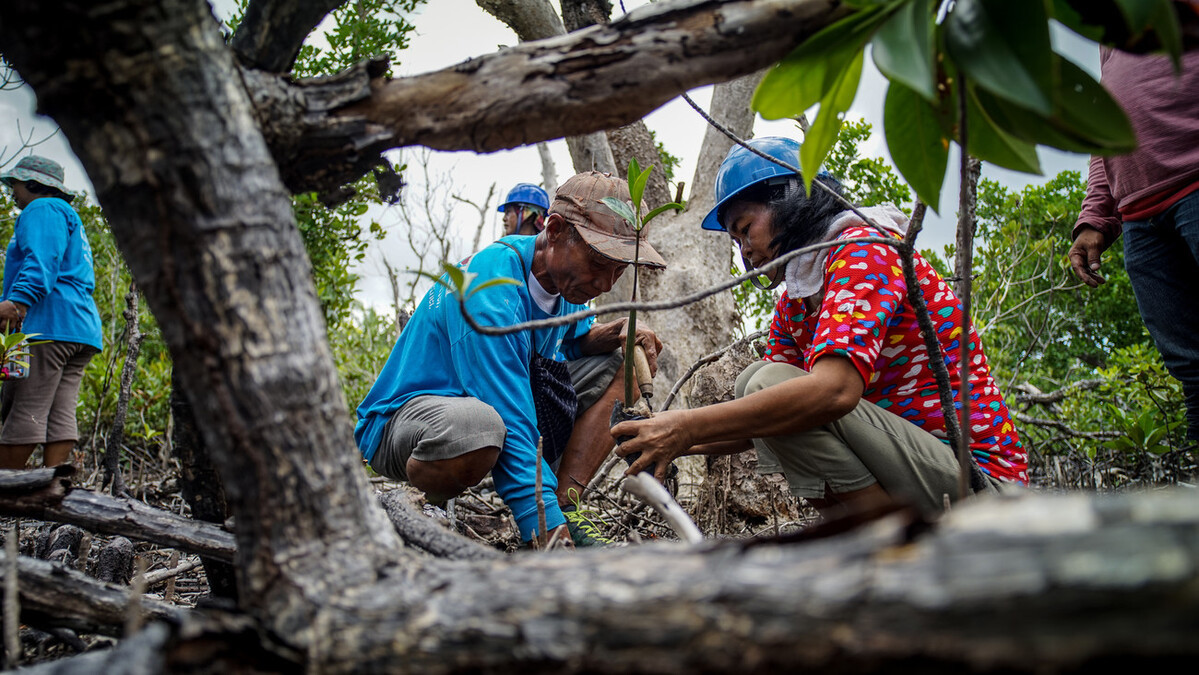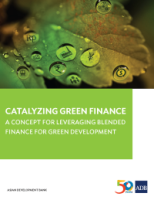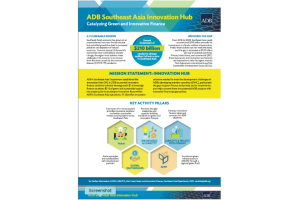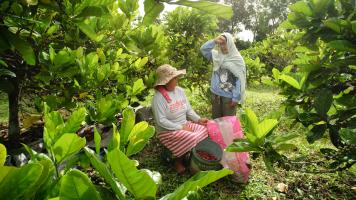
ADB's Nature Solutions Finance Hub for Asia and the Pacific aims to boost investments on nature-based solutions that protect natural ecosystems and foster economic growth. Photo credit: ADB.
The hub aims to attract at least $2 billion into investment programs that incorporate nature-based solutions.
The Asian Development Bank (ADB) launched a Nature Solutions Finance Hub for Asia and the Pacific at COP28 which aims to attract at least $2 billion into investment programs that incorporate nature-based solutions, particularly focused on capital markets and other sources of private capital.
“Nature is a critical carbon sink with forest and land ecosystems as well as oceans absorbing around 55% of carbon dioxide emissions,” said ADB President Masatsugu Asakawa. “It is vital to protect nature in our battle against climate change. The Asia and the Pacific region, where nature loss threatens two-thirds of GDP, is particularly vulnerable, and hence the hub is a much-required platform for bringing technical and financing solutions to this theme in the region.”
Partners that have expressed interest in supporting the hub through financing or technical expertise and joined the launch include the OPEC Fund for International Development, Agence Française de Développement (AFD), the Saudi Fund for Development, ASEAN Catalytic Green Finance Facility, the International Union for Conservation of Nature, Nature Finance, The Nature Conservancy, Worldwide Fund for Nature, Birdlife International, and Conservation International.
Nature-based solutions are features incorporated into the design of projects—both traditional infrastructure and direct nature-conservation projects—that protect, manage, and restore natural ecosystems while still enabling a country or community’s growth, a win-win for biodiversity and people. Restoring mangroves and reforesting wetland areas, for example, can restore biodiversity, protect natural habitats, absorb carbon, improve resilience to climate change, and shore up food security and ecotourism for local communities.
“Biodiversity on land and water has been under immense pressure through development, agriculture, and urbanization,” said UN Climate Change High-Level Champion for COP28 and President of the International Union for Conservation of Nature Razan Al Mubarak. “The global call to conserve 30% of the Earth’s lands, oceans, and coastal areas, and restore 30% of degraded inland waters and marine ecosystems, requires urgent collaboration to scale up nature-based solutions.”
The hub aims to provide integrated activities that will support both upstream awareness, policy, and capacity building for nature-based solutions projects, and downstream innovative finance structuring in projects to directly attract funds via bonds, from banks, and others. For instance, using guarantees to reduce revenue risk in a nature-based solutions project could raise more capital from a nature bond than might otherwise happen.
The hub will deploy a range of financing measures to reduce risks in nature-based solutions projects such as guarantees, impact-linked payments, and blended finance options. The hub is targeting about $1 billion in such de-risking funds from global development partners with advanced discussions underway with several entities.
“Climate change and nature are inextricably linked. There is a need for strong cooperation between governments and development agencies, not only for scaling up cofinancing to nature-based solutions but also for knowledge sharing on innovative approaches in Africa, South America, and Asia–Pacific. The OPEC Fund is proud to support this initiative, which is in line with our Climate Action Plan," said OPEC Fund Director-General Abdulhamid Alkhalifa.
The OPEC Fund for International Development is the only globally mandated development institution that provides financing from member countries to nonmember countries exclusively. Since its establishment in 1976, the OPEC Fund has committed over $24 billion of its own resources for more than 4,000 projects in over 125 countries worldwide with a total value of some $190 billion.
As Asia and the Pacific’s climate bank, ADB aims to provide $100 billion in climate financing from its own resources from 2019 to 2030, including $34 billion for adaptation. In 2022, ADB committed $7.1 billion of climate finance, including $4.3 billion for mitigation and $2.8 billion for adaptation. The bank mobilized an additional $548 million in climate finance from the private sector last year.
ADB is committed to achieving a prosperous, inclusive, resilient, and sustainable Asia and the Pacific, while sustaining its efforts to eradicate extreme poverty. Established in 1966, it is owned by 68 members—49 from the region.
This article was first published by ADB on 4 December 2023.


